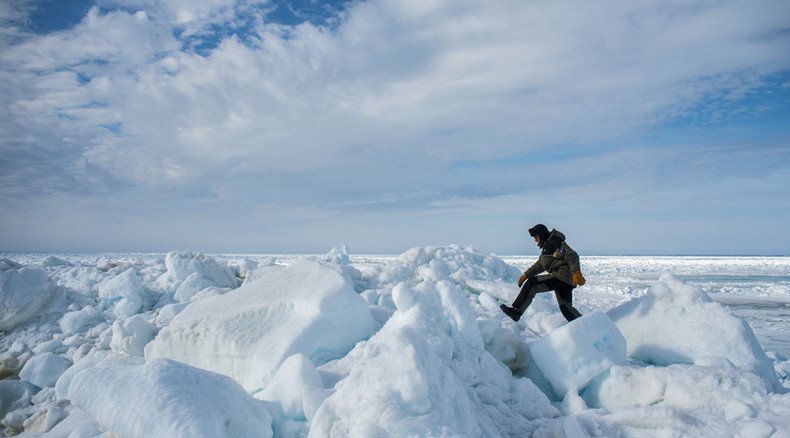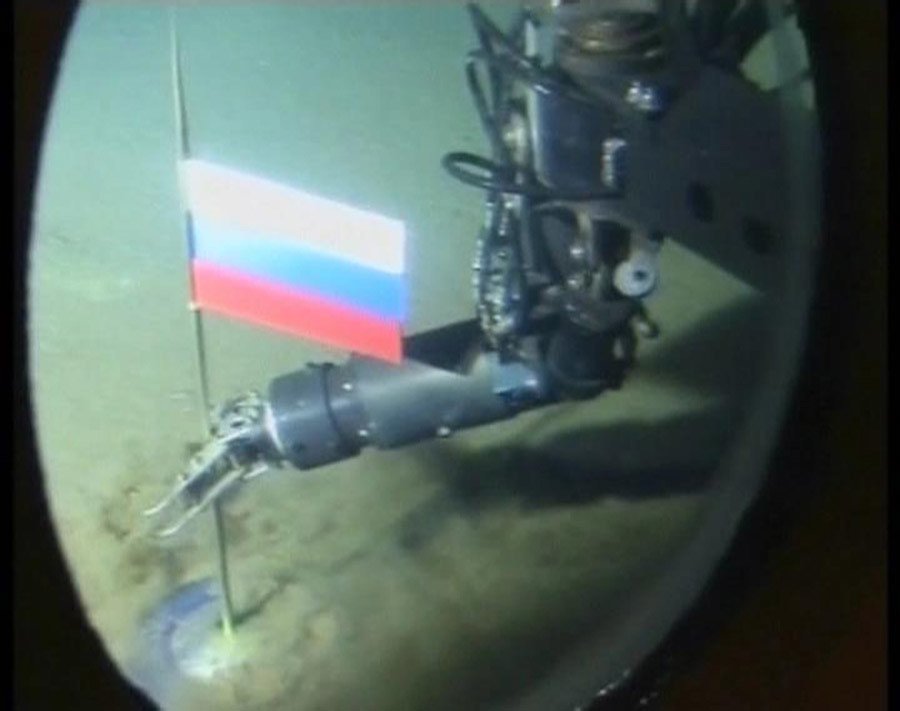Russia submits 1.2 million sq km Arctic claim to UN

Russia has filed an application to expand the boundaries of its continental shelf in the Arctic. Moscow made a similar claim in 2002, but the UN turned it down for lack of scientific support.
“The Russian application covers an underwater space covering an area of about 1.2 million sq km at a distance of over 350 nautical miles from the coast. To justify Russia’s bid for expansion, Russian experts used extensive scientific data collected during many years of Arctic research,” said a statement from a Russian Ministry of Foreign Affairs on Tuesday.
The application claims for Lomonosov Ridge, Mendeleev-Alpha Rise and Chukchi Plateau, Russia believes the territories to be belonging to “submarine elevations that are natural components of the continental margin.” The Podvodnikov and Chukchi Basins that divide the three territories were also added to the claim.
Moscow is acting in accordance with the 1982 UN Convention on the Law of the Sea. The convention allows a country to claim an exclusive 200-nautical mile economic zone over the continental shelf abutting its shores. If the continental shelf expands beyond the limit, the zone may be expanded up to 350 nautical miles with full control of natural resources, including gas and oil.
#Russia renews bid for #Arctic region to the @UNhttp://t.co/v3doEtZXab#oil#gaspic.twitter.com/Rs2N7Pq49z
— Federica Giovannetti (@fed_giovannetti) August 5, 2015If Russian scientists prove that these ranges are the continuation of the Russian continental shelf, Moscow will be entitled an exclusive right to develop these resources, the volume of which, according to the Ministry of Natural Resources, may reach 5 billion tons of untapped oil and natural gas reserves worth as much as $30 trillion.
In 2007, Russia made a symbolic claim to the territories by dropping a titanium-encased Russian flag to the sea floor directly below the North Pole.

Greenpeace activists have already expressed concerns about active Arctic development.
"The melting of the Arctic ice is uncovering a new and vulnerable sea, but countries like Russia and Norway want to turn it into the next Saudi Arabia. Unless we act together, this region could be dotted with oil wells and fishing fleets within our lifetimes," said Greenpeace Russia Arctic campaigner Vladimir Chuprov.
In December 2014, Denmark and its autonomous territory of Greenland filed a request claiming a 900 sq km territory in the Arctic. Besides Russia and Denmark, the US, Canada and Norway also have Arctic sectors.
According the US Geological Survey, the Arctic holds an estimated 13 percent (90 billion barrels) of the world's undiscovered conventional oil resources and 30 percent of undiscovered conventional natural gas resources.












